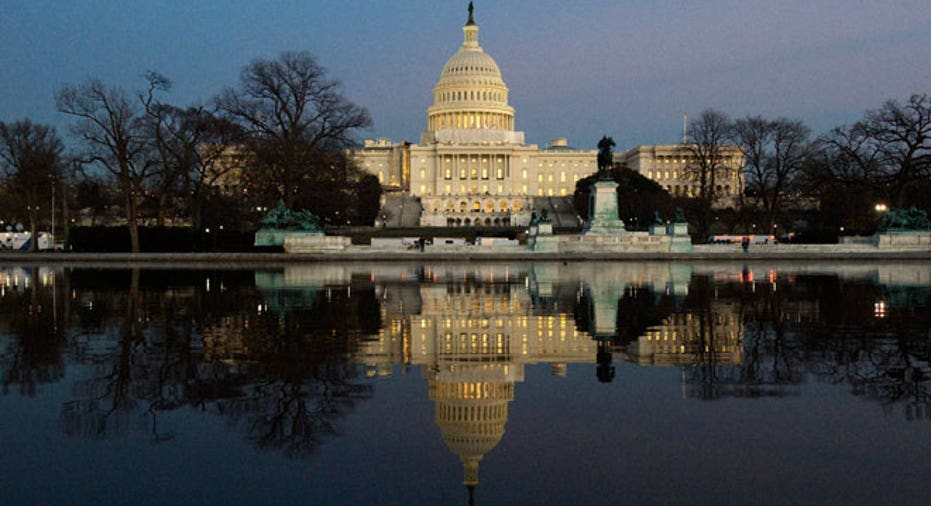Washington’s Inversion Perversion? Try…Intrusion

What is it with the government’s perversion with inversions? It seems the White House is so determined to crack down on companies trying to escape paying taxes here, that it never stopped to first consider “why” they are bolting from here.
Let me save you the trouble – it’s the higher taxes. And it’s killing a lot of American corporations. That doesn’t mean they’re putting profits before patriotism. But it does mean, without profits they won’t go very far with just patriotism. Bottom line, it’s about the bottom line. Companies need to make money, and a growing number of businesses have concluded that’s getting very tough to do here.
It’s not just the top corporate tax rate in America that’s hurting them. At 35%, it’s the highest of the world’s developed countries. But when you combine national, state and city tax rates, the so-called nominal corporate tax rate is nearly 40%. And that doesn’t include the cost of regulations, especially the taxes and administrative costs associated with the President’s health-care law.
But for now, let’s leave out those added costs, substantial as they are. Comparing tax apples-to-apples, suffice it to say, American companies are paying through the nose. The Organization for Economic Co-operation and Development reports America’s average corporate tax rate of 39.1% dwarfs the OECD average for industrialized nations of 24.1 percent.
To be sure, companies don’t end up paying that advertised rate. Much like the sticker price listed on a new automobile, what you see isn’t always what you pay. Yet even allowing for tax allowances and deductions, the tax burden American firms face here is daunting compared to pretty much anywhere else.
The World Bank factored in such allowances and came up with an effective United States’ tax rate of 27.9%. That’s second only to New Zealand among OECD nations, and 15th highest among all 189 countries measured.
So the White House might want to concentrate not so much on how U.S. companies try to escape higher taxes here, but why taxes are so much higher here. As former Heinz chief executive Bill Johnson says, money seeks out safer havens, and it’s incumbent on all public companies to “do their fiduciary responsibility” and weigh those havens.
But the reality is the administration is much more interested in closing legal loopholes than removing the incentive for companies to take advantage of those incentives in the first place. Hence the Treasury Department announcing this week that it’s tightening tax rules to defer U.S. companies from moving their headquarters to lower-tax countries. This is a common device for those firms that buy out a foreign company and then make that company’s typically lower-tax domicile its domicile as well.
What’s weird is these tax changes take effect immediately, and now apply to all deals that hadn’t closed as of Monday of this week. That means Medtronic’s (NYSE:MDT) proposed acquisition of Irish medical-device maker Covidien could be held up, along with Salix Pharmaceuticals’ planned purchase of a unit of Italy’s Cosmo Pharmaceuticals.
Then there’s that Burger King-Tim Hortons combo – the one in which famed investor and Obama-friend Warren Buffett is a major investor. Burger King has already said it’s moving its corporate headquarters to Canada. Does this latest regulatory change mean that changes? It’s hard to say, but this much is not – the corporate rules are changing as we speak, and by executive edict at that.
Yet the reality is none of this would even matter if the companies behind these deals weren’t considering the tax savings behind these deals. That’s not to say the top executives at these firms still don’t see the strategic value in these combinations. But Washington pulling the rug out from under them mid-stream will make them re-think any combinations. As Heinz’ Johnson put it – “Washington doesn’t help its cause when it keeps changing the rules.”
But it’s more what Washington is NOT changing that frustrates many American chief executives. Almost to a man and woman, corporate bosses say if lawmakers spent as much time creating tax incentives as it does shutting them down, companies wouldn’t be going anywhere.
Because lost in the sauce of clamping down on companies is addressing the underlying cause of what’s become something like a jail break for a lot of companies. This isn’t about them being patriotic, this is about them being profitable so they can be patriotic, and patriotically employ the very American workers Washington insists they’re hurting.
Makes you wonder who’s really not being patriotic – the companies trying to stay in business or some politicians who keep giving them the business.



















